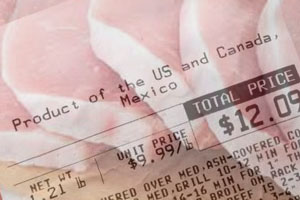Canada: Ag minister pressures US Gov. to end COOL

Agriculture Minister Ritz held meetings with members of the US Congress, US Secretary of Agriculture Tom Vilsack, and US and Canadian industry representatives in Washington D.C. on the subject of mandatory Country of Origin Labelling (COOL). Minister Ritz continued to pressure key members of the US Government to put an end to mandatory COOL, which continues to hurt producers and processors on both sides of the border.
These meetings build upon Minister Ritz’ speech to the US livestock sector at the North American Meat Association’s (NAMA) Outlook Conference in Chicago, IL, and discussions with NAMA members on the negative impacts of COOL and the importance of resolving COOL, now, through legislative changes in the Farm Bill.
“Our Government continues to stand up for Canadian livestock producers by opposing mandatory Country of Origin Labelling,” said Minister Ritz. “Our message today was clear: the US has a timely opportunity to do what’s best for both our countries and fix COOL in the current Farm Bill.”
The Canadian delegation included Alberta Agriculture and Rural Development Minister Verlyn Olson, as well as representatives from the Canadian Cattlemen’s Association and the Canadian Pork Council.
COOL has significantly disrupted the North American supply chain, created unpredictability in the market and imposed additional costs on producers on both sides of the border. Canada’s position remains that the US has failed to bring COOL into conformity with its World Trade Organization (WTO) obligations.
On September 25, 2013, a WTO compliance panel on COOL was established in Geneva to determine whether COOL has been brought into conformity with the WTO obligations of the US As the 2013 amended regulations increase the discriminatory effects of COOL against Canadian livestock, Canada is confident that the WTO will continue to find the US non-compliant. If Canada prevails in the compliance proceedings, which may include an appeal to the WTO Appellate Body, the next step would be for Canada to seek authorization from the WTO to impose retaliatory tariffs on US imports.











